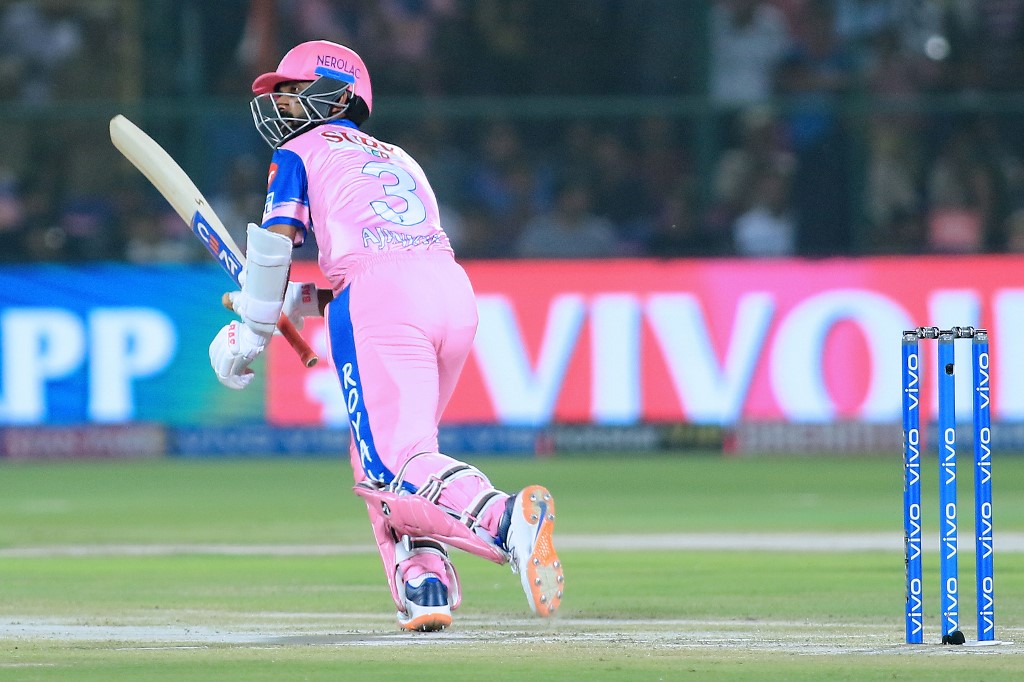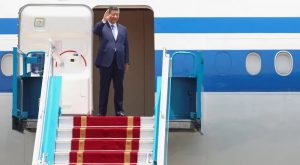Chinese sponsorship of India’s biggest sporting event was under threat on Friday after a border clash between the two countries sparked calls in India for a boycott of Chinese products and companies.
The Indian Premier League cricket tournament said its chiefs would meet next week to review sponsorship deals.
Chinese mobile phone maker VIVO is the IPL’s top sponsor having paid $330 million for a deal between 2018-2022.
Growing calls have been made for action against Chinese firms after a clash between Indian and Chinese forces on their Himalayan border on Monday in which 20 Indian troops were killed. The Chinese army also suffered casualties.
“Taking note of the border skirmish that resulted in the martyrdom of our brave (soldiers), the IPL Governing Council has convened a meeting next week to review IPL’s various sponsorship deal,” said a statement on the IPL’s official Twitter account.
The league has not gone ahead this year because of the coronavirus pandemic, but cricket chiefs still hope it can be played.
“Ban all Chinese products,” Indian spinner Harbhajan Singh wrote on Twitter reflecting the growing anti-China sentiment in the country.
The Indian Olympic Association said it was also ready to reconsider its deal with Chinese kit makers Li Ning.
“Our tie up with them is until the Tokyo Olympics. We will take a decision in the executive board meeting whenever that takes place after the lockdown,” IOA secretary-general Rajeev Mehta told AFP.
“We are with the country. And we will never allow our soldiers’ morale to be dampened,” he said.
Hurt and angry: Modi
India’s Prime Minister Narendra Modi said on Friday that his country was “hurt and angry” after a border clash with China that left 20 troops dead, and warned that the army has been given free reign to respond to any new violence.
India and China have blamed each other for the high altitude clash on their contested Himalaya frontier on Monday which also left Chinese casualties after brutal fights with nail studded batons, rocks and rods covered in barbed wire.
Modi called a rare meeting with opposition party leaders to discuss the simmering crisis hours after China released 10 Indian troops, including two majors, it had seized in the battle in the Galwan valley of Ladakh region.
Amid mounting calls for a boycott of Chinese products and highly-charged public funerals for the dead soldiers, Modi said “the entire country is hurt and angry at the steps taken by China”.
The prime minister denied that any Chinese forces were “inside our territory” and insisted that “upholding sovereignty is foremost” for his Hindu nationalist government.
“The armed forces have been given a free hand to take all necessary steps,” Modi said.
India and China have rushed reinforcements to the border since the most serious incident between the world’s two most populous countries in more than four decades. The neighbours fought a full-scale border war in 1962 and have not agreed a frontier since.
Amid international concern over the clash, top US officials including Secretary of State Mike Pompeo have sided with India in accusing China of escalating tensions.
Boycott calls
The release of the 10 soldiers late on Thursday, confirmed by Indian security officials, followed several rounds of talks between top military officers and the foreign ministers on both sides.
China did not confirm the release but a foreign ministry spokesman said there were no Indian troops “currently detained” and that the two countries “are in dialogue to resolve the matter on the ground through military and diplomatic channels”.
Eighteen troops were being treated for serious injuries after the battle, the Indian military said. Security officials said that four were in critical condition.
China has admitted that its forces suffered casualties but has not given figures.
Funerals for the Indian soldiers, many attended by thousands of people, have become rallying points for calls to boycott China.
Chinese flags and posters of China’s President Xi Jinping have been burned in several cities.
Major generals from the two armies held new talks Friday in a bid to calm the military face-off in the remote valley and at other spots.
The foreign ministers from the two countries have also held telephone talks but warned each other against further violence in public statements.
Beijing said that India should “not underestimate China’s firm will to safeguard its territorial sovereignty,” after talks between Wang Yi and his Indian counterpart Subrahmanyam Jaishankar.
Jaishankar said that China had launched a “pre-meditated” attack which would have a “serious impact” on relations between the neighbours.
AFP
























